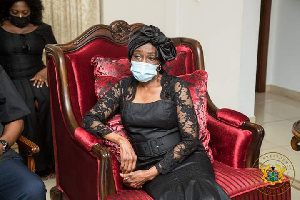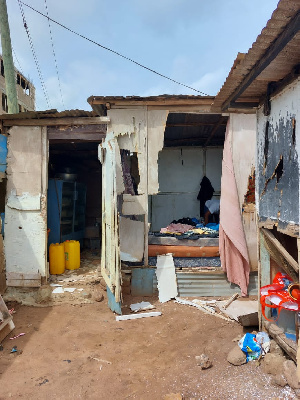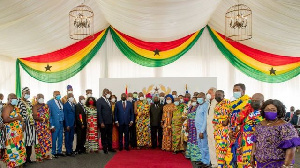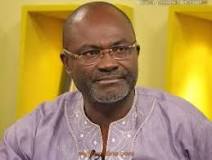The Untold: Escaping firing squad in Ghana to set up UK’s Black History Month

Akyaaba Addai-Sebo is an academic and African activist who has pushed forward the frontiers of Black empowerment. This is how he described his reason for fleeing Ghana: “I came to the UK to seek refuge from political persecution in Ghana during the regime of Jerry John Rawlings in January 1984. A death squad had been sent after me but I escaped their detection and was declared a WANTED MAN.
“The People’s and Workers’ Defence Committees at that time protected me and prepared my escape after three weeks of hide and seek with the security agencies. I settled in London with my wife, Nana Akua Owusu, who had arrived before me,” he narrated.
And in the many years he has lived in the UK, Akyaaba Addai-Sebo worked hard at ensuring that he filled an emptiness that had engulfed many Ghanaians and Africans in the diaspora.
With a focus on the UK, he pursued an urge to get answers to why so many Black people struggled with their identities.
From an experience with a mother in the 1980s who had to help her 7-year-old son come to the realisation that being Black was not a crime, he said he began asking many questions about Black identity.
“I was stirred up in the mid-1980s by the identity crisis that Black children faced as some brazenly would not identify with Africa and shrank when called an African. A colleague came to work one morning broken-hearted and in probing her why, she revealed to me in confidence that her seven-year-old son, who she had proudly and purposefully named Marcus, after Marcus Mosiah Garvey (a foremost Black nationalist leader), before going to bed, had asked her: ‘Mom, why can’t I be white?’
“In consoling this devastated mother, I was prompted to go around asking questions about ‘identity’ and to observe and talk to children more after school, in buses, parks, and in the playgrounds in the communities in some parts of London. I was awakened to the fact that even some Ghanaians tried to mimic being Afro-Caribbeans and some Afro-Caribbeans would take offence being referred to as ‘African,’” he said.
It would take him some time to achieve his goal, however, Akyaaba started a strategic awareness event that has come to be known today as Black History Month in the UK.
36 years after that bold initiative, the Ghanaian pan-African activist has been honoured for all the great initiatives he has taken in ensuring that the Black race is empowered, particularly in the United Kingdom.

On January 19, 2023, the School of Oriental and African Studies (SOAS) University of London awarded Akyaaba Addai-Sebo with an Honorary Doctorate of Literature.
The honour was to celebrate the substantial contribution to pan-African activism that has been led by the Ghanaian, his role in “developing the recognition of October as Black History Month in the UK and his numerous publications including Our Story: A Handbook of African History and Contemporary Issues, which he co-edited with Ansel Wong CBE,” a citation read said. The book was published following the first Black History Month in the UK.
In his acceptance speech, Akyaaba Addai-Sebo expressed disappointment in his generation of African leaders describing them as having failed the current one.
He added that they have betrayed the present generation as many societies on the African continent are on the verge of collapse.
He was also disappointed in the fact that many of these African leaders received their education in more advanced societies like the UK, but have failed to replicate the same in their respective countries.
“I’m disappointed with the leadership of our generation that has ruled Africa from the 1980s to the present. My generation has failed and betrayed the younger generation who risked their lives to flee their countries, to cross the desert and the sea in order to reach Europe for a better life.
“Societies in Africa are on the verge of collapse. When you find the vast majority of the youth wake up in the morning with nothing to look forward to but misery and hopelessness, and come to think of it, where were most of the ruling elites of my generation educated? Not here in Europe, US and Canada?
“The rule of my generation has shredded the integrity of Mother Africa,” he said.
From 1992 to 1997, Akyaaba Addai-Sebo acted as a Special Peace Envoy for an international non-governmental organisation, International Alert, where he facilitated and brokered peace between warring factions, first in Liberia, and then in Sierra Leone, to help bring both wars to an end.
Following this period, Addai-Sebo became Special Advisor to the Secretary-General of the Organisation of African Unity (OAU) during its transition to become the African Union (AU). He also conceived and helped to establish the AU’s Eminent Persons Advisory Panel (EPAP), which is now known as the Panel of the Wise.
Akyaaba was also the Senior Policy Advisor to the former London Strategic Policy Unit, where he advised on key policy areas surrounding education, social welfare for young people, gender, the traveller community, and for refugees and migrants advancing the ethos that the refugee is a human being first.
In 2014, Akyaaba was the executive producer of the documentary film, One Humanity, which recounts the global solidarity campaigns to end the apartheid regime in South Africa leading to a free democratic state with Nelson Mandela as its first president in 1994.
He is currently an independent consultant on preventive diplomacy and cultural synchrony in international development.

Source: www.ghanaweb.com





